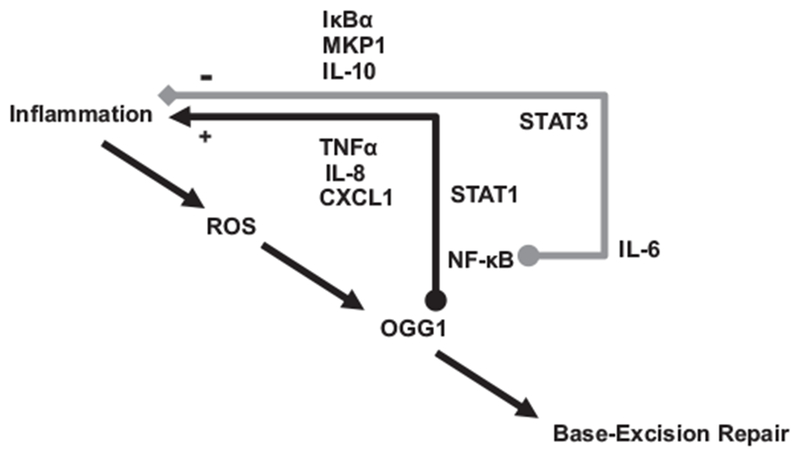Fig. 2.

Roles of OGG1-regulated genes in NSCLC pathology, and dynamics of ROS impact on OGG1 and inflammation. Expression of immediate early genes increases during the acute phase, to become repressed during resolution of inflammation, due to negative feedback from anti-inflammatory genes that give products which gradually accumulate. Genes such as IL-10 ultimately contribute to termination of inflammation. In malignant cells feedback to NF-κB-mediated signaling is defective, disrupting tissue homeostasis, and permitting cancer progression.
